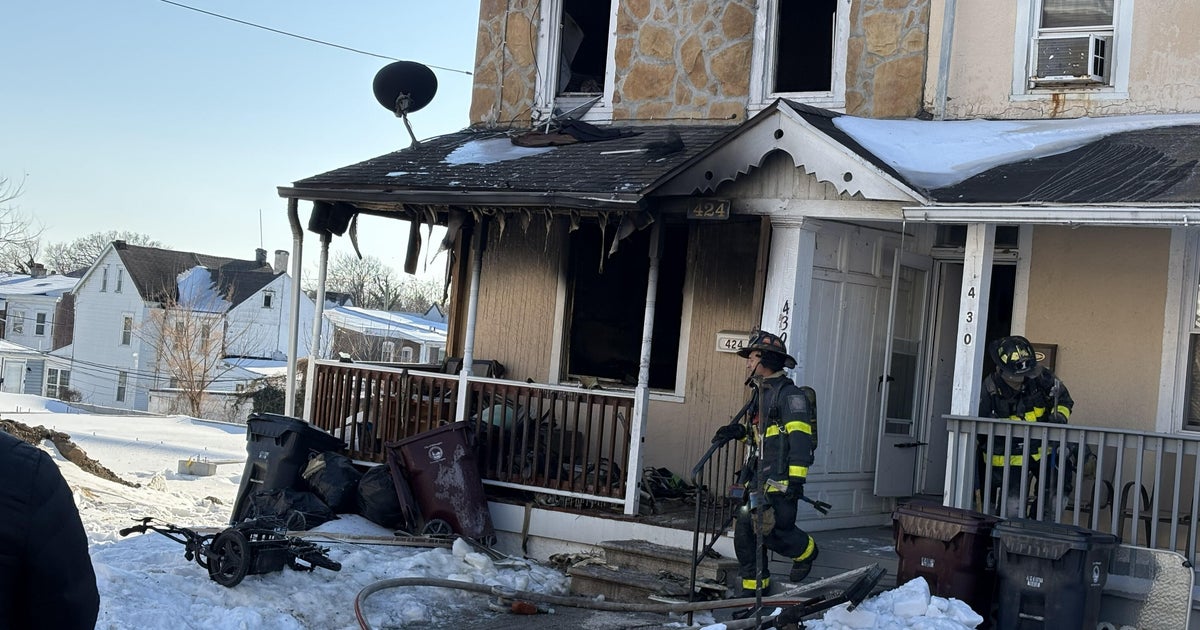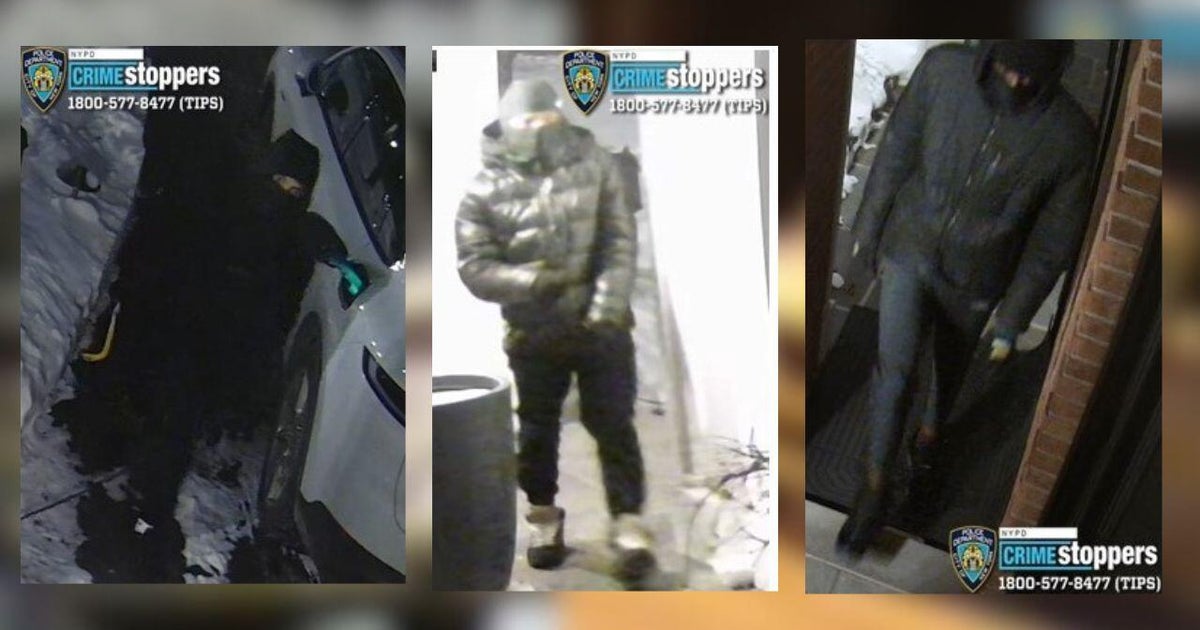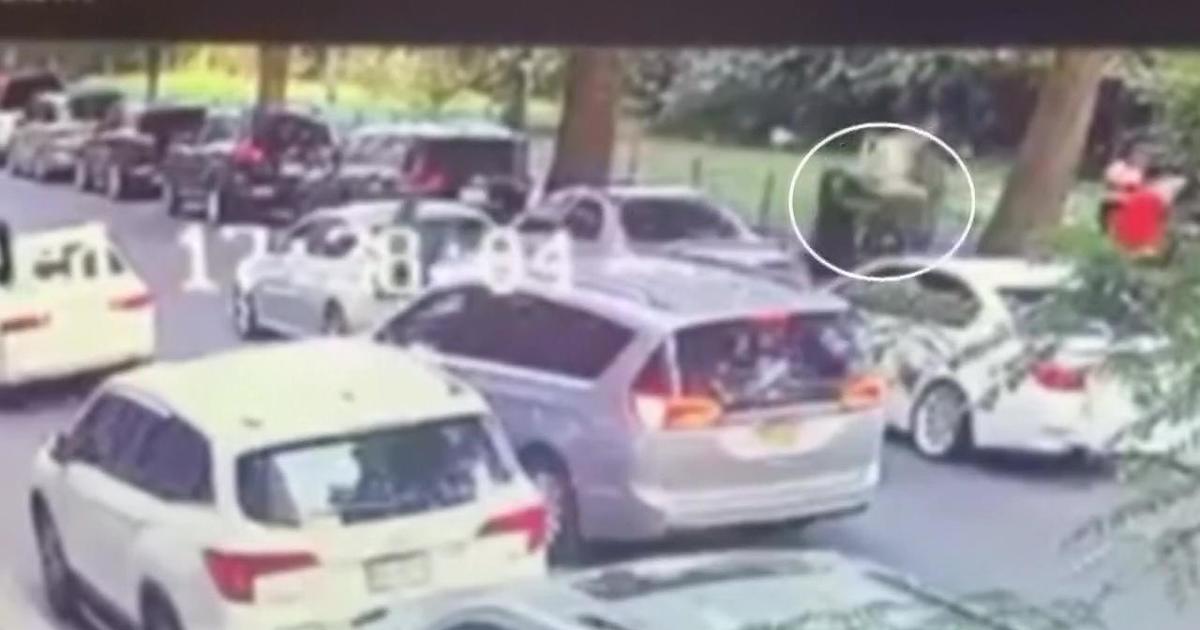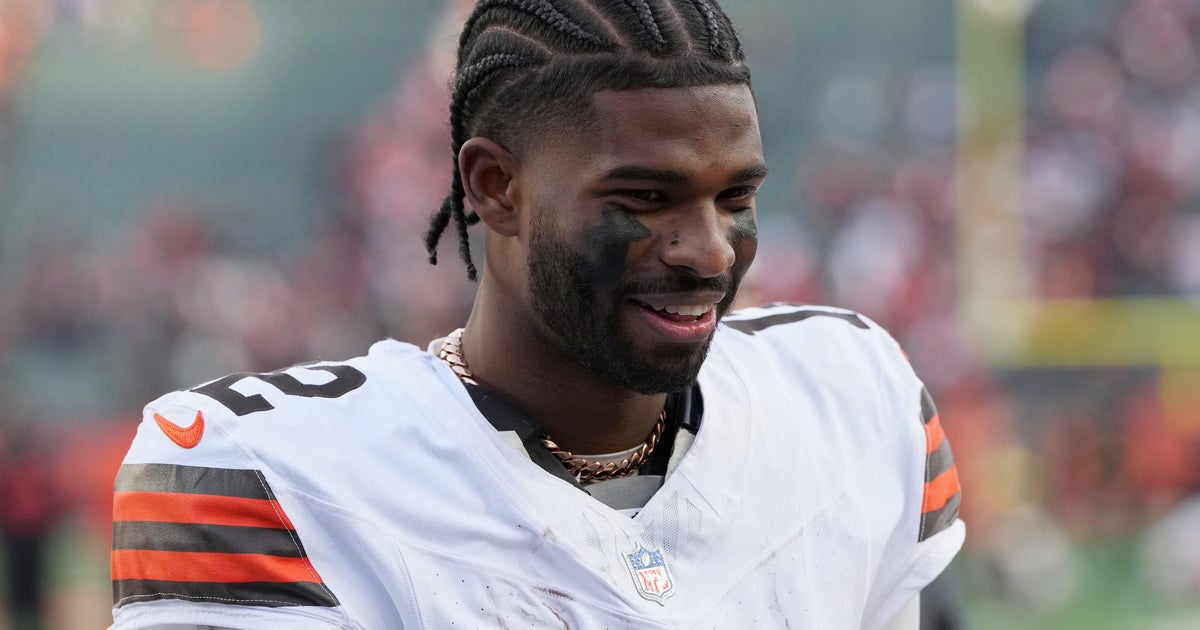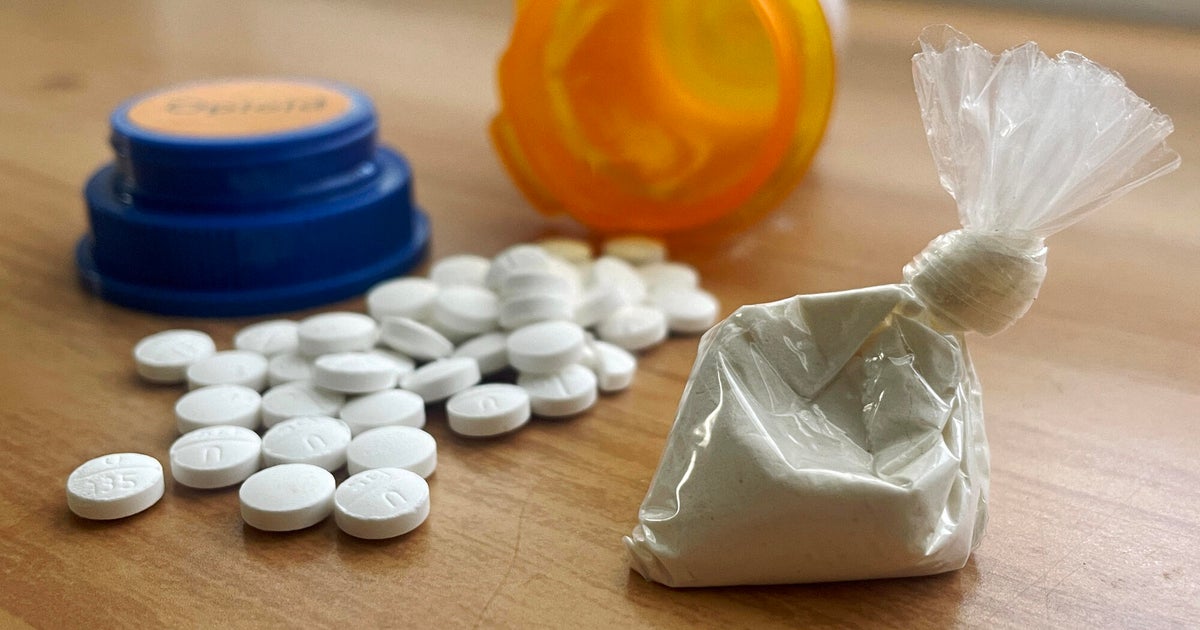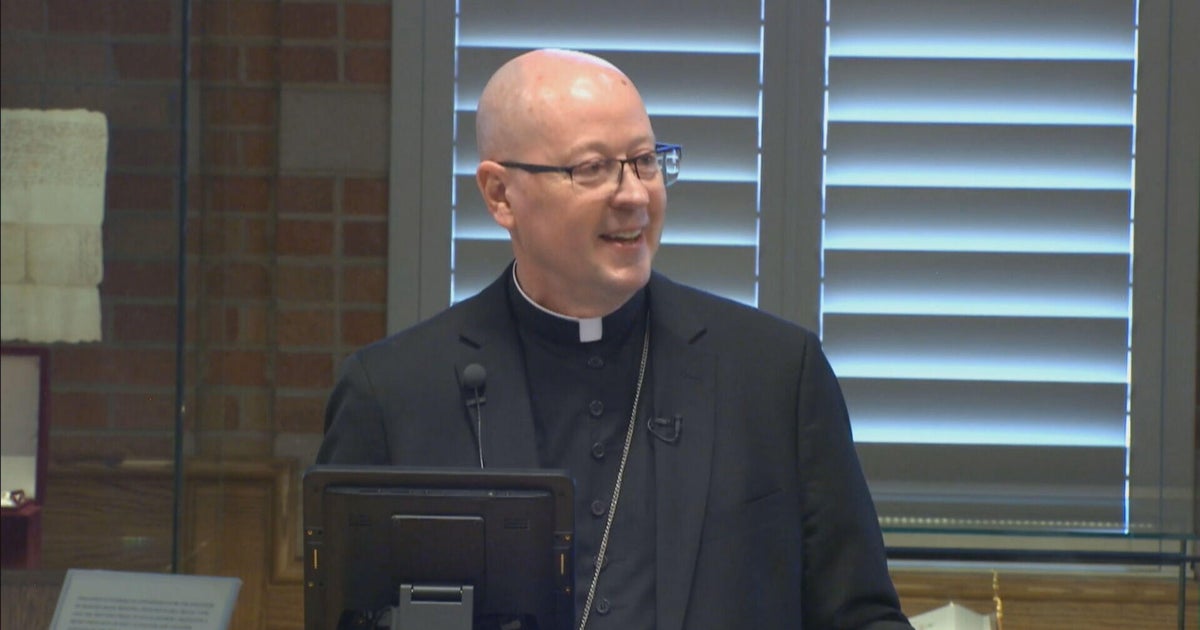NYPD Commissioner Bill Bratton Stepping Down Next Month
NEW YORK (CBSNewYork/AP) -- Police Commissioner Bill Bratton will be stepping down next month as the NYPD's top cop.
Mayor Bill de Blasio announced Bratton's resignation at City Hall on Tuesday. James O'Neill, currently the Chief of Department, will be taking over as the new commissioner effective Friday, Sept. 16.
"We will never forget or fail to honor the achievements of Bill Bratton," de Blasio said. "He and I have developed an intense bond over these last 31 months and I am happy for the future."
Bratton also left a video message for the men and women of the NYPD.
EXTRA: 5 Fast Facts About Bratton | 5 Fast Facts About O'Neill
De Blasio said Bratton told him that he would be retiring back on July 8.
He called Bratton's contributions to the city "inestimable and extraordinary" and while addressing him directly, said, "I'll miss seeing you every single day, but this friendship, and this deep connection, will continue."
The mayor gave Bratton extraordinary freedom to speak his mind, and told him the job was his as long as he wanted it.
By all accounts, Bratton chose to leave, CBS2 Political Reporter Marcia Kramer reported. Bratton said he was "leaving with reluctance," adding that the ongoing NYPD corruption probe had nothing to do with his decision.
"I wish I had more time, chronologically, to stay around for three or four years to work on the issues that are going to take that long to straighten out," he said. "I don't have that type of time."
Mayor de Blasio also emphasized that Bratton's resignation was not linked to the corruption probe.
"One hundred and ten percent, has nothing to do with this," de Blasio said.
Bratton's new job will be as senior managing director and executive chairman of Teneo Risk, a chief executive officer advisory firm that will focus on cyber risks, data security, infrastructure development, crisis response preparedness and more.
"I am extremely impressed with the global business Teneo has built over the last five-years and I believe in the firm's focus on working with the CEOs of the world's largest companies," Bratton said.
Bratton said the job is "extraordinarily exciting" for him and his wife. He said he will be staying in the city.
CBS2's Tony Aiello spoke with Bratton and O'Neill together Tuesday evening as they attended the annual Night Out against crime in Harlem. He asked Bratton how he was feeling after his announcement.
"Feeling great. Some woman in there just said, 'God, you look so much younger in person,' so I liked that one," Bratton said. He pointed to O'Neill and added: "Maybe all the pressure has shifted on him. We'll see how he looks in a day or so."
Bratton was confident that most New Yorkers appreciate his legacy.
"I think the legacy is pretty secure about significant crime reduction over time; 25 years. I think certainly these three years have been marked a phenomenal investment by the mayor; City Council, into the NYPD," Bratton said.
De Blasio asked for a round of applause for Bratton at the event.
"No one has done more to keep us safe in the entire history of our city than our commissioner Bill Bratton, he is going to retire," de Blasio told the crowd. "Let's give him the round of applause he deserves."
Manhattan District Attorney Cyrus Vance, Jr. called Bratton "perhaps the world's most innovative leader in policing and public safety."
"New York is a safer place because of his tireless service and unparalleled vision as the city's top cop," he said in a statement.
U.S. Attorney Preet Bharara also called Bratton "a great leader."
"For his strong stewardship of the NYPD during these challenging times for law enforcement, every New Yorker owes him a debt of gratitude," Bharara said in a statement.
Gov. Andrew Cuomo said he was saddened and surprised to hear of Bratton's departure. But he said the city has been lucky when it comes to police commissioners.
"Ray Kelly and Commissioner Bratton are probably the Babe Ruth and Lou Gehrig of police commissioners. I mean these were really two of the best," Cuomo said. "And people can argue between Babe Ruth and Lou Gehrig who they like better, but there is no doubt that Kelly and Bratton really were two of the finest."
Cuomo called Bratton a great public servant who brought credibility and competence to the job.
The Rev. Al Sharpton said he had mixed feelings on Bratton. He supported the outgoing commissioner for overseeing the end of stop-and-frisk, but blamed him for the broken windows policy of policing.
"I feel that broken windows policing is broken policing," he said.
As for O'Neill, Sharpton said he does not know the commissioner appointee well, so he wants to have a sit-down.
"Mr. O'Neill needs to immediately meet with civil rights leaders, faith leaders," Sharpton said.
As CBS2 Political Reporter Marcia Kramer reported, cheers and a few middle fingers from protesters greeted Bratton and his wife, Rikki Klieman, as he walked out of City Hall after announcing his resignation.
It was not the kind of exit strategy Bratton had hoped for. The reaction came from only a small band of protesters who had been demanding his ouster, but the song they sang as his car departed likely hit a nerve, Kramer reported. They sang the 1969 pop song "Na Na Hey Hey Kiss Him Goodbye" – a song that has been used for many years as a jeering chant at losing sports teams, unpopular politicians and other objects of derision.
It all served as a blunt reminder of the many problems Bratton is leaving behind, from corruption to cop killings and the turmoil that spurred the Black Lives Matter movement.
Overall in New York City, Bratton has his supporters and detractors.
"It's a sad day," said Isaac Rivera of Throgs Neck, the Bronx. "I followed his career from the when he was here during the Giuliani administration, and he's one of the best. I used to say that Ray Kelly was the Marine of police commissioners but, Bill Bratton was a goddamn navy seal."
"Maybe things might be changed for the better, a woman added.
Some attendees also weighed in at the Night Out in Harlem.
Eartha Jewels said she would remember Bratton "as a great guy."
"These guys come in to do the best that they can do," Jewels said.
But Nat Williams of Harlem wasn't so sure that Bratton deserved the credit for crime being at historic lows.
"He didn't do that!" Williams said. "People just stopped doing crime!"
Meanwhile, de Blasio praised soon-to-be Commissioner O'Neill as someone who is "going to be an extraordinary leader for this department."
He said O'Neill has been the architect of the department's neighborhood policing program, which works to strengthen the relationship between police and the community. He said the program would be in place in 51 precincts by the fall.
De Blasio said O'Neill "is ready to take this department where it's never been before in terms of a truly deep and consistent bond between police and community."
O'Neill has held the department's highest uniformed position since November 2014. Housing Chief Carlos Gomez will succeed him as Chief of Department.
O'Neill's squeaky clean reputation may bring the mayor support in minority communities that provided a good deal of his votes in the last election.
"The mayor's minority voter approval numbers will rise, and the rest of the city will detest him more because they will see this as another chaotic day in the de Blasio mayoralty," said political consultant Hank Sheinkopf.
But O'Neill will be under pressure to make the transition to community policing work, according to criminal justice expert John Eterno.
"Community partnerships and working with them is something that will help with terrorism. It's something that will help with crime," Eterno said. "It will get more information for the Police Department."
The focus shifts from writing summonses to building relationships.
"In this model of policing, we give the cops each day time that they're not answering 911 jobs," O'Neill said. "I think that's an important time. They can use it wisely make sure that connectivity is made.
Politically, the mayor also made sure that the new NYPD leadership team would be racially diverse. Ben Ticker, who is African-American, will take over as first deputy commissioner, while Carlos Gomez, who is Hispanic, will be chief of department.
On Bratton's watch, the NYPD has drastically scaled back its "stop-and-frisk'' strategy. But adding to a national wave of concern about police treatment of minorities, the chokehold death of Eric Garner in 2014 and a grand jury's decision not to indict the officer involved sparked protests and tension between the mayor and rank-and-file officers who felt he took protesters' side.
Then officers Wenjian Liu and Rafael Ramos were ambushed and shot dead by a gunman who had announced online he planned to kill police in retaliation for Garner's death.
In an extraordinary display of scorn, officers turned their backs on the mayor at a hospital on the night of the December 2014 killings and again at the officers' funerals.
Bratton found himself in the middle, calling the officers' gesture inappropriate but at the same time noting that it reflected officers' feelings about "many issues.''
The tensions between the mayor and police eased, but officers have been under scrutiny this summer as concern about police-minority relations has welled anew here and elsewhere.
This week, a group of protesters at City Hall Park has been demanding Bratton be fired from the NYPD and for an end to broken windows policing. That was the group that cheered as he departed.
On Monday, Bronx state Assemblyman Michael Blake, who is black, filed an excessive-force complaint against the NYPD, saying an officer handled him roughly as Blake tried to defuse an argument between officers and residents.
The department said that the officer perceived a possible threat to a sergeant when Blake placed a hand on his shoulder and that the officer had apologized.
Still, Bratton said, "we are farther along in New York City than most places'' in improving relationships between police and minorities, thanks to training and other measures.
PHOTOS: NYPD Commissioner Bill Bratton Resigning
Meanwhile, the department has been facing a corruption probe. Prosecutors said police accepted $100,000 in free flights, prostitutes, meals and other bribes, and in return arranged for police escorts, special parking and gun permits.
Bratton's resignation comes a day after Quinnipiac University released a poll finding New Yorkers are sharply divided on how the city is handling crime, but more than half of respondents approving of how Bratton was handling his job.
Patrolmen's Benevolent Association President Pat Lynch thanked Bratton for his service during "a very challenging period for the NYPD and its members."
"We wish him well in his new endeavors. We hope that Chief O'Neill will make supporting and protecting police officers on the street his first priority when he assumes his new role," he said in a statement. "We look forward to working with him to make sure that New York City police officers are fully supported, with the fair compensation, staffing, equipment and training that we need to protect all New Yorkers."
Ed Mullins, president of the Sergeants Benevolent Association, issued a statement saying Bratton is "finally doing what is right for the members of the NYPD and the people of New York City."
"We wish him well and look forward to a new direction for the NYPD," he said.
Queens City Councilman Eric Ulrich (R-32nd) said Bratton's departure "could not have happened at a worse time."
"Morale in the police department is at an all-time low and the majority of New Yorkers simply don't have confidence in Mayor de Blasio's ability to lead our city," he said in a statement. "Bill Bratton brought common sense and stability to an otherwise dysfunctional administration. He understood the importance of building consensus and was one of the few remaining administration officials keeping it all together. Quite frankly, I'm surprised he lasted this long."
In an interview last month, Bratton said he would not remain commissioner past 2017, but also left open the possibility that he could leave even sooner. The 68-year-old commissioner said he was "still young enough" to take on "additional challenges."
Bratton is in his second stint as commissioner in New York.
He began serving as de Blasio's police commissioner in January 2014, but he first led the department under former Mayor Rudy Giuliani from 1994 to 1996. It was then that the controversial broken windows policy went into practice.
Bratton quit the first time because he clashed with then-Mayor Giuliani – joking that Giuliani gave him the key to the city and then changed the locks.
Bratton also served as the head of New York City's transit police in 1990 and has led the Boston and Los Angeles police departments. He began his police career in 1970 as an officer in Boston.
Klieman, Bratton's wife, is a CBS contributor. Bratton has one son and two grandchildren.
(TM and © Copyright 2016 CBS Radio Inc. and its relevant subsidiaries. CBS RADIO and EYE Logo TM and Copyright 2016 CBS Broadcasting Inc. Used under license. All Rights Reserved. This material may not be published, broadcast, rewritten, or redistributed. The Associated Press contributed to this report.)
